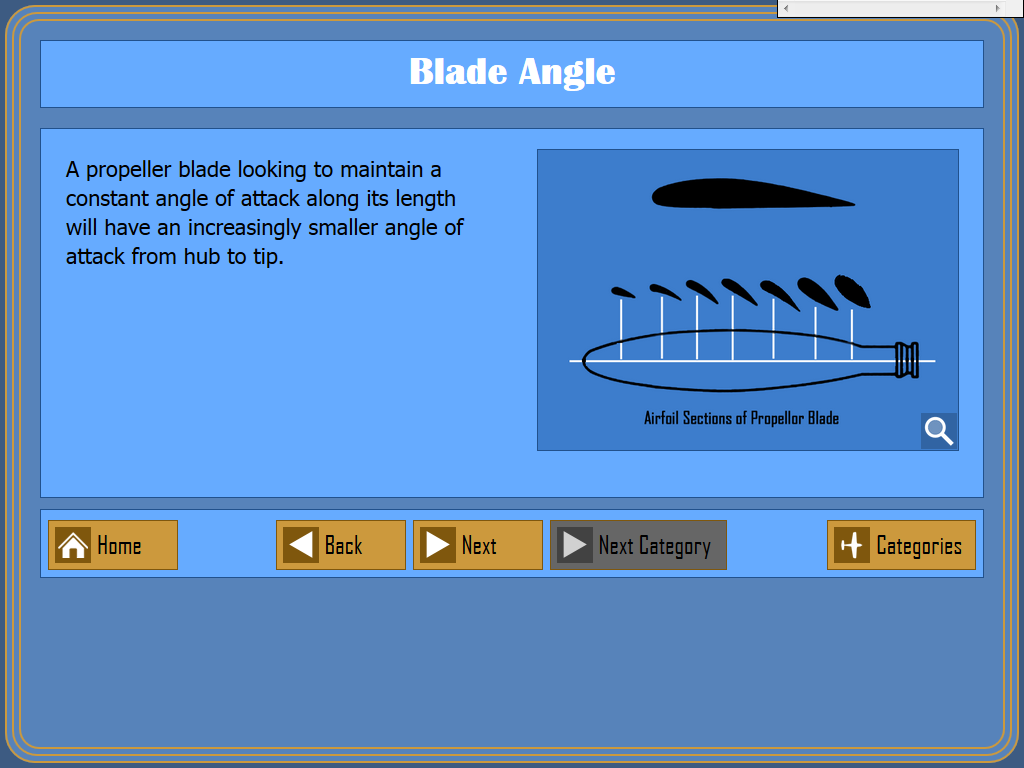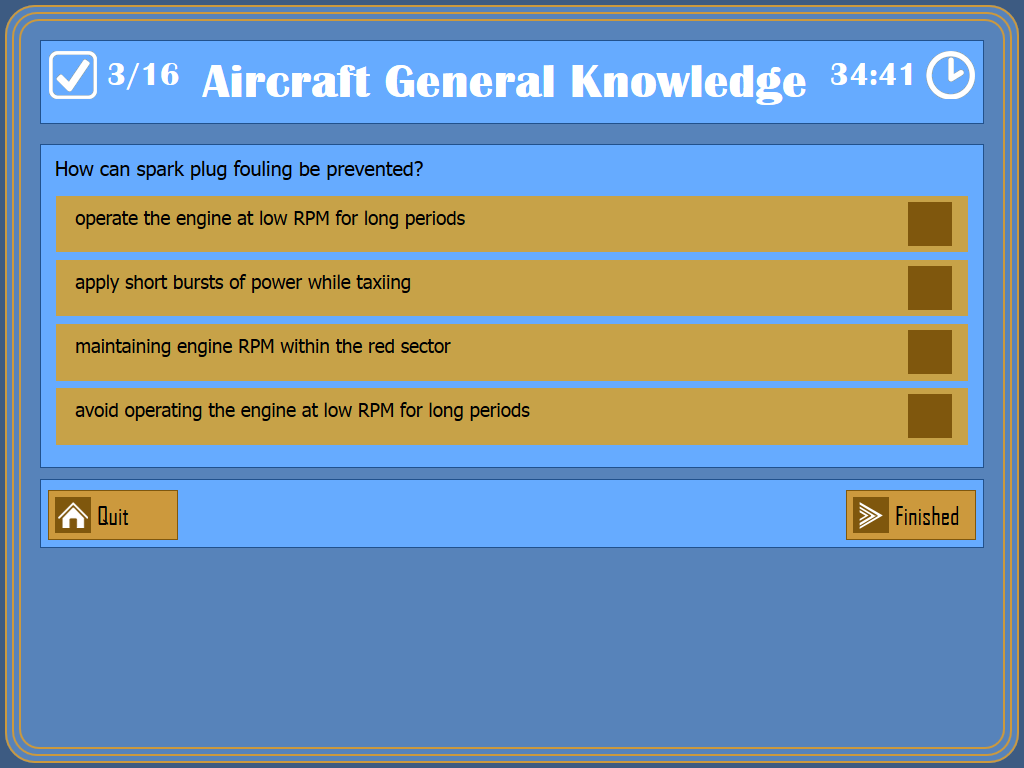PPL Aircraft General Knowledge Exam
While Principles of Flight covers some of the aerodynamic aspects of how planes fly, Aircraft General Knowledge tells you a little more about how aircraft are put together and how the mechanical and electrical parts work.
Some of this may seem purely theoretical, but knowing how an altimeter works (in principle at least) can give you some idea of how things such as changing air pressure and temperature can affect its accuracy. It's certain to give you a renewed appreciation of how important the QNH pressure setting you'll usually receive at the aerodrome is.
The Aircraft General Knowledge exam consists of 16 multiple choice questions and a 35 minute time limit, and the 75% pass mark means you must answer at least 12 questions correctly. Although not as straightforward as either of Communications or Human Performance, this exam is much simpler than those such as Navigation or Flight Performance and Planning, and the questions are almost entirely ones of memory recall rather than calculation.
As the larger size (16 questions rather than 12 for most of the exams) might indicate, there is a little more to remember, but with adequate preparation it shouldn't provide too many difficulties. Read the books, take plenty of tests using the mock exams in PPL Exam Tutor, and hopefully you'll be able to tick Aircraft General Knowledge off of your list in the same sitting as one of the more difficult exams.
 An example of Aircraft General Knowledge revision content in PPL Tutor
An example of Aircraft General Knowledge revision content in PPL Tutor
 An example Aircraft General Knowledge exam question in PPL Tutor
An example Aircraft General Knowledge exam question in PPL Tutor